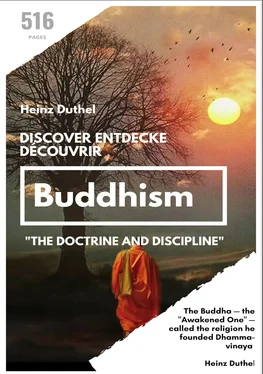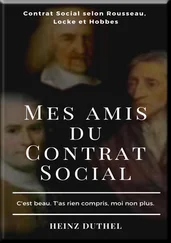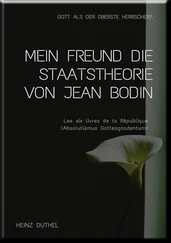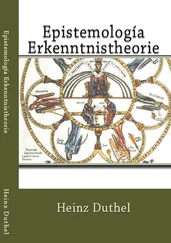II. Readings
'Indeed, the Blessed One [the Buddha] is worthy and rightly self-awakened, consummate in knowledge and conduct, well-gone, an expert with regard to the cosmos, unexcelled as a trainer for those people fit to be tamed, the Teacher of divine and human beings, awakened, blessed.'
'The Dhamma is well-expounded by the Blessed One, to be seen here and now, timeless, inviting verification, pertinent, to be realized by the wise for themselves.'
'The Sangha of the Blessed One's disciples who have practiced well... who have practiced straight-forwardly... who have practiced methodically... who have practiced masterfully — in other words, the four types of noble disciples when taken as pairs, the eight when taken as individual types — they are the Sangha of the Blessed One's disciples: worthy of gifts, worthy of hospitality, worthy of offerings, worthy of respect, the incomparable field of merit for the world.'
— A X.92
Buddha
[The Buddha speaks:] I lived in refinement, utmost refinement, total refinement. My father even had lotus ponds made in our palace: one where red-lotuses bloomed, one where white lotuses bloomed, one where blue lotuses bloomed, all for my sake. I used no sandalwood that was not from Varanasi. My turban was from Varanasi, as were my tunic, my lower garments, and my outer cloak. A white sunshade was held over me day and night to protect me from cold, heat, dust, dirt, and dew.
I had three palaces: one for the cold season, one for the hot season, one for the rainy season. During the four months of the rainy season I was entertained in the rainy-season palace by minstrels without a single man among them, and I did not once come down from the palace. Whereas the servants, workers, and retainers in other people's homes are fed meals of lentil soup and broken rice, in my father's home the servants, workers, and retainers were fed wheat, rice, and meat.
Even though I was endowed with such fortune, such total refinement, the thought occurred to me: "When an untaught, run-of-the-mill person, himself subject to aging, not beyond aging, sees another who is aged, he is horrified, humiliated, and disgusted, oblivious to himself that he too is subject to aging, not beyond aging. If I — who am subject to aging, not beyond aging — were to be horrified, humiliated, and disgusted on seeing another person who is aged, that would not be fitting for me." As I noticed this, the [typical] young person's intoxication with youth entirely dropped away.
Even though I was endowed with such fortune, such total refinement, the thought occurred to me: "When an untaught, run-of-the-mill person, himself subject to illness, not beyond illness, sees another who is ill, he is horrified, humiliated, and disgusted, oblivious to himself that he too is subject to illness, not beyond illness. And if I — who am subject to illness, not beyond illness — were to be horrified, humiliated, and disgusted on seeing another person who is ill, that would not be fitting for me." As I noticed this, the healthy person's intoxication with health entirely dropped away.
Even though I was endowed with such fortune, such total refinement, the thought occurred to me: "When an untaught, run-of-the-mill person, himself subject to death, not beyond death, sees another who is dead, he is horrified, humiliated, and disgusted, oblivious to himself that he too is subject to death, not beyond death. And if I — who am subject to death, not beyond death — were to be horrified, humiliated, and disgusted on seeing another person who is dead, that would not be fitting for me." As I noticed this, the living person's intoxication with life entirely dropped away.
— A III.38
The Quest for Awakening
Before my Awakening, when I was still an unawakened Bodhisatta, being subject myself to birth, aging, illness, death, sorrow, and defilement, I sought [happiness in] what was subject to birth, aging, illness, death, sorrow, and defilement. The thought occurred to me: "Why am I, being subject myself to birth... defilement, seeking what is subject to birth... defilement? What if I... were to seek the unborn, unaging, unailing, undying, sorrowless, undefiled, unsurpassed security from bondage: Unbinding."
So at a later time, when I was still young, black-haired, endowed with the blessings of youth in the first stage of life, I shaved off my hair and beard — though my parents wished otherwise and were grieving with tears on their faces — and I put on the ochre robe and went forth from the home life into homelessness.
Having gone forth in search of what might be skillful, seeking the unexcelled state of sublime peace, I went to where Alara Kalama was staying and, on arrival, said to him: "I want to practice in this doctrine and discipline."
When this was said, he replied to me, "You may stay here. This doctrine is such that a wise person can soon enter and dwell in his own teacher's knowledge, having realized it for himself through direct knowledge."
I quickly learned the doctrine. As far as mere lip-reciting and repetition, I could speak the words of knowledge, the words of the elders, and I could affirm that I knew and saw — I, along with others.
I thought: "It isn't through mere conviction alone that Alara Kalama declares, 'I have entered and dwell in this Dhamma, having realized it directly for myself.' Certainly he dwells knowing and seeing this Dhamma." So I went to him and said, "To what extent do you declare that you have entered and dwell in this Dhamma?" When this was said, he declared the dimension of nothingness.
I thought: "Not only does Alara Kalama have conviction, persistence, mindfulness, concentration, and discernment. I, too, have conviction, persistence, mindfulness, concentration, and discernment. Suppose I were to endeavor to realize for myself the Dhamma that Alara Kalama declares he has entered and dwells in..." So it was not long before I entered and dwelled in that Dhamma, having realized it for myself through direct knowledge. I went to him and said, "Friend Kalama, is this the extent to which you have entered and dwell in this Dhamma, having realized it for yourself through direct knowledge?"
"Yes..."
"This is the extent to which I, too, have entered and dwell in this Dhamma, having realized it for myself through direct knowledge."
"It is a gain for us, a great gain for us, that we have such a companion in the holy life... As I am, so are you; as you are, so am I. Come friend, let us now lead this community together."
In this way did Alara Kalama, my teacher, place me, his pupil, on the same level with himself and pay me great honor. But the thought occurred to me, "This Dhamma leads not to disenchantment, to dispassion, to cessation, to stilling, to direct knowledge, to Awakening, nor to Unbinding, but only to reappearance in the dimension of nothingness." So, dissatisfied with that Dhamma, I left.
— M 26
"Now, Aggivessana, these three similes — spontaneous, never before heard — appeared to me. Suppose there were a wet, sappy piece of timber lying in the water, and a man were to come along with an upper fire-stick, thinking, 'I'll light a fire. I'll produce heat.' Now what do you think? Would he be able to light a fire and produce heat by rubbing the upper fire-stick in the wet, sappy timber lying in the water?"
"No, Master Gotama..."
"So it is with any priest or contemplative who does not live withdrawn from sensuality in body and mind, and whose desire, infatuation, urge, thirst, and fever for sensuality is not relinquished and stilled within him: Whether or not he feels painful, racking, piercing feelings due to his striving [for Awakening], he is incapable of knowledge, vision, and unexcelled self-awakening...
"Then a second simile — spontaneous, never before heard — appeared to me. Suppose there were a wet, sappy piece of timber lying on land far from water, and a man were to come along with an upper fire-stick, thinking, 'I'll light a fire. I'll produce heat.' Now what do you think? Would he be able to light a fire and produce heat by rubbing the upper fire-stick in the wet, sappy timber lying on land?"
Читать дальше












